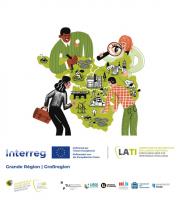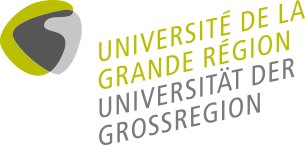
The new project LATI launches: Collaboration between Research, Politics, and Public Administration for Sustainable Territorial Development in the Greater Region
Funded by Interreg VI A Greater Region and anchored in the UniGR-Center for Border Studies, the University of the Greater Region – as lead partner of the new LATI project – brings together researchers, policymakers, and public administrators.
With a total budget of nearly €4.7 million, LATI strengthens cross-border dialogue on spatial planning in the Greater Region. At its core are mutual learning and the joint testing of policies, strategies, and practical approaches. The aim is to rethink spatial planning – in a sustainable, networked way, and closely aligned with real-life challenges.
LATI not only brings together the six member universities of the University of the Greater Region network, but also numerous strategic partners from politics and public administration – forming a genuine science-policy interface. This creates a strong network that facilitates dialogue across multiple levels.
To ensure successful implementation, the project is structured around five key work packages:
- A digital knowledge platform
- Simulation games and workshops for citizens and experts
- Continuing education programs for planning professionals
- Support for multilingual cooperation
- Strategic consulting by an international expert committee
Scientific project coordinator Tom Becker from the University of Luxembourg explains:
“Through close cooperation between research, administration, and politics, we are creating a new approach to spatial planning – one that is flexible, innovative, and sustainable. LATI brings together diverse perspectives to address the challenges of cross-border development collectively and across all levels.”
To mark the launch of this forward-looking project, a kick-off event will be held on June 27, 2025, in Saarland, where the project will be officially presented. The project consortium warmly invites all interested parties to save the date.

© Katrina Günther, Thinking Visual


